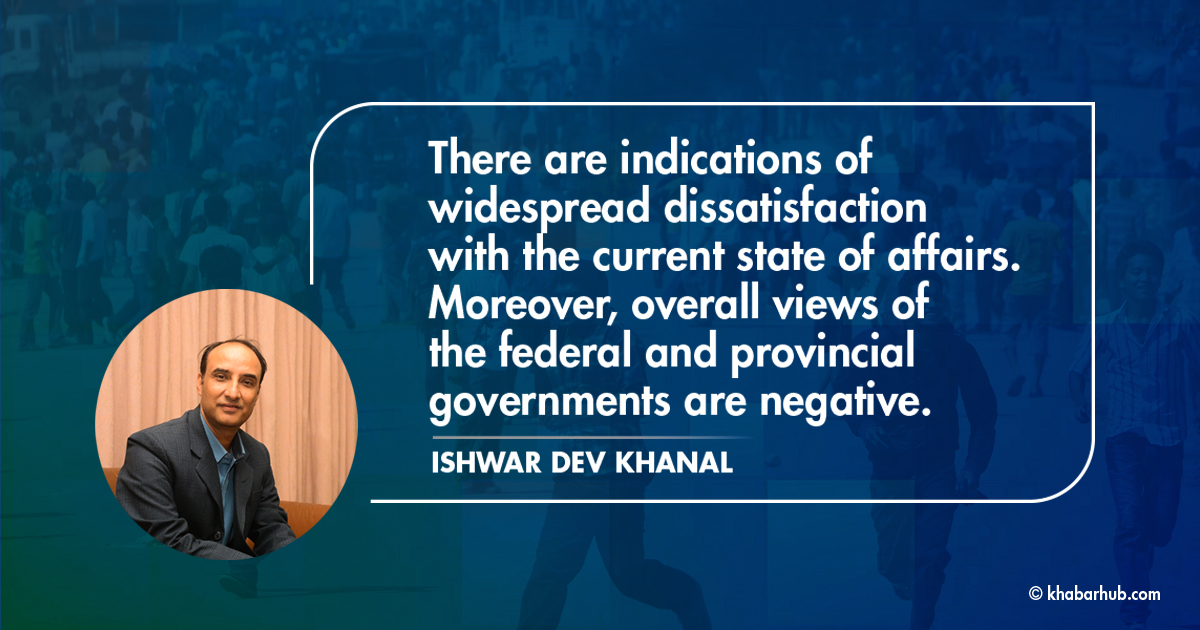0%

Nepali Congress influential leader Gagan Thapa, in a recent live television interview, labeled the KP Oli-led government an “utter failure” one. He even went on to describe the Nepal Communist Party government the “most inefficient” in the country’s history.
The question is: Should the Nepali people be surprised by Thapa’s allegations? Perhaps not, since people are annoyed with the government’s performance, and the intra-party wrangling in the ruling NCP.
Forget about the government, people have started hitting the streets holding national flags chanting slogans against the system itself. If NC leader Thapa’s opinion is to be borrowed, he said people are free to demonstrate or express their concerns in a Loktantra (Democracy).
In fact, people are frustrated for good reason: they not only feel that the government and the ruling party are going in the wrong direction because of clumsy, incompetent and ideologically driven political agendas, and partisanship, but people feel disempowered to change the system. The question is why, again!
However, what the government, political parties, particularly the NCP and the NC, need to cogitate is that this kind of disengagement and apathy will lead to an even worse situation.
At the same time, the majority of the Nepali people have a lengthy to-do list of their frustration. The majority of them want the federal government to address issues of public concerns — controlling corruption, ensuring good governance, development, education and health, and effective COVID-19 response.
The already-wide partisan gaps have grown even wider among the politically engaged people, especially over the government’s role in health care, education, and economy, among other issues.
The government and the ruling party are engaged in power-sharing politics at a time when the coronavirus pandemic continues to rampage across the country.
That is why people are growing increasingly frustrated at the government’s response on coronavirus, with its downplaying of this deadly virus clashing with health authorities and doctors’ warnings.
The government’s inconsistent decisions and lack of transparency on the pandemic, too, has led to public distrust of the government.
Putting all this together will paint a compelling picture of a majority of the Nepali people who are still struggling to make ends meet.
The government, meanwhile, seems to be unresponsive at all levels, and the ministers are alleged of becoming rich.
However, both the ruling NCP (which is engaged in an internal row) and the main opposition Nepali Congress (alleged of be in a slumber) continue to highlight their involvement on some specific issues.
At a general level, people have found the government frustrating and very badly managed, and more interestingly, the general feeling of the people about the government have tended more toward frustration rather than anger.
Nepali people will be more than happy to safeguard loktantra. However, the distrust of the government, its poor performance, and its rampant corruption will further escalate people’s frustration.
Moreover, negative views of the elected members continue to rise as deep partisan has divided the people.
Here, let me borrow Thapa’s assertion once again: This is one of the reasons why people are frustrated as they have started to think that this system – though being good in itself – did not bring significant changes in their lives in the last five years of the promulgation of the new Constitution.
NC leader Thapa, in the course of the interview, said that this system is “not weak enough” to be collapsed.
However, what the government, political parties, particularly the NCP and the NC, need to cogitate is that this kind of disengagement and apathy will lead to an even worse situation.
Nepali people will be more than happy to safeguard loktantra. However, the distrust of the government, its poor performance, and its rampant corruption will further escalate people’s frustration.
Moreover, confidence in the people has dropped too as the majority of the people in the government (ministers), too, have failed to do the right thing.
It is, therefore, high time political parties kept aside their vested interests and worked for the people to give the impression of change.